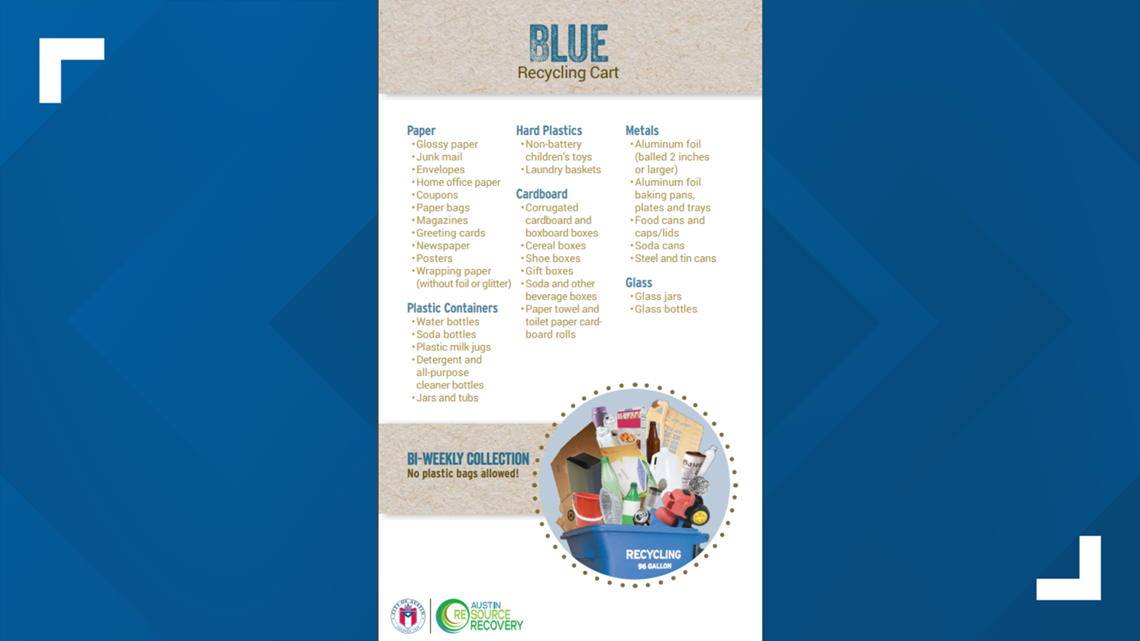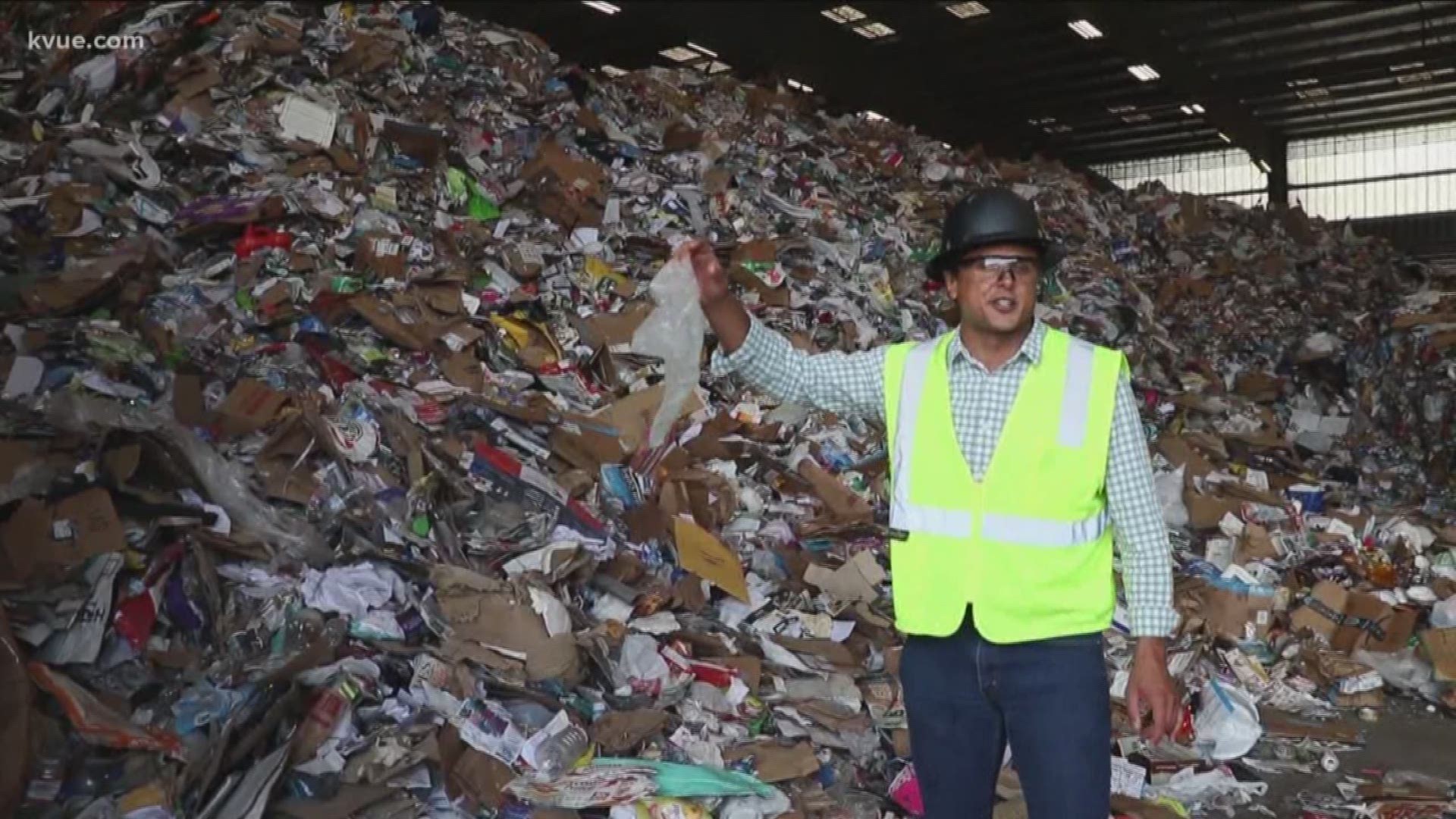AUSTIN, Texas — Stephanie Crocker wants the best life for her newborn son, including a safe environment.
“I love living in a city that’s so conscious about being green,” said Crocker.
She started recycling many years ago and thought she was doing her part, that is until a friend told her the trash bag she used to hold her paper, hard plastics and cans cannot be recycled.
“That’s what we did every week,” said Crocker.
For some recycling plants, a bag of recycling will go to the trash.
Crocker posted on social media, alerting her friends on Facebook and neighbors though Nextdoor.
“I was totally dumbfounded,” said Crocker.
Many others who commented on Crocker’s posts didn’t know either, which is why KVUE decided to find out why.
“Plastic bags are a big issue for us. We see a lot of that,” said Richard McHale, interim director of Austin Resource Recovery.
RELATED:
Austin Resource Recovery oversees waste and recycling collection in Austin.
“We get a lot of people that put their plastic bags and the conveyor system moves so fast," said McHale. "If those materials are in plastic bags, the entire material in the bags has to be thrown away.”
Balcones Resources processes Austin recycling north of the Colorado River. Texas Disposal Systems processed recycling south of the river.
“Once the trucks arrive, material is deposited onto the floor in this area of the plant called the tip floor,” said Joaquin Mariel, VP of operations for Balcones.
“Anything like this [plastic bag] is not suited to the automated sorting process,” said Mariel.
During the separation process, items cross several spinning disks.
Cardboard slides over the tops of the disk to its own conveyor belt. Other recyclables fall trough. But when plastic bags and other “tanglers” go though the system, the material can wrap around the disk.
“When you get plastic that wraps around those shafts, it can no longer effectively separate the two-dimensional objects," said Mariel. "So, where there was a gap there before that would enable smaller things to go through, there’s no longer a gap. Now we’re allowing contaminates to flow across with the cardboard and contaminate the finished cardboard product.”
Balcones crews clean the machines three times a day.
“Every time we have to shut down to clean that film out of these streams, we’re shutting down for about 30 minutes," said Mariel. "Every 30 minutes we shut down, we’re not processing 15 tons of recycling. It’s a big deal.”
Austin Resource Recovery wants contamination to be less than 10%, if at all.
In May 2018, the contamination rate was 23.08% for Balcones pickups. November’s rate was 19.72%.
For Texas Disposal Systems, 16.93% of recyclables were contaminated in April 2018 and 17.05% in October.
Balcones Resources lists several items on its website that are not accepted in the recycling bins:
- Paper with heavy wax or plastic coating (candy wrappers, take-out and freezer containers, etc.)
- Soiled or soft paper (napkins, paper towels, tissues)
- Hardcover books (schools should follow their school book recycling procedures)
- Batteries
- Electronic devices banned from disposal
- Printer cartridges
- Glass items other than glass bottles and jars (such as mirrors, light bulbs, ceramics and glassware)
- Window blinds
- Foam plastic items
- Flexible plastic items
- Film plastic (such as plastic shopping bags and wrappers)
- Cigarette lighters and butane gas lighters
- Cassette and VHS tapes
- Pens and markers
- “Tanglers” (such as cables, wires, cords, hoses)
- Rigid plastic containers containing medical “sharps” or disposable razors
- Containers that held dangerous or corrosive chemicals
The City of Austin's website shows the benefits of recycling, including how it can save you money. The City also lists several myths around recycling.


For more information about Austin’s residential recycling collection, click here.
For more information about Balcones Resources, click here.
For more information about Texas Disposal Systems, click here.
PEOPLE ARE ALSO READING:



